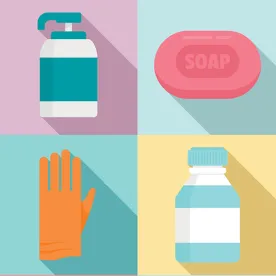This week, the U.S. Senate passed the "Coronavirus Aid, Relief, and Economic Security Act" (the "CARES Act") to respond to the COVID-19 crisis.
The House is set to vote on Friday, and the passage of the CARES Act appears imminent. As my colleagues Joanne Badr Morgan and Lee Hodge shared yesterday, the CARES Act provides expanded loan programs and tax relief for many small businesses. This article will focus on how employers can take advantage of these measures.
[Ed. Note: The CARES Act was signed into law on March 27, 2020.]
Paycheck Protection Loans ("PPL") Program
Under the CARES Act, the creation of the PPL Program expands the existing Small Business Administration's ("SBA") 7(a) loan program in terms of eligibility and allowable expenditures. Businesses and section 501(c)(3) nonprofit organizations that employ (i) not more than 500 employees, including employees of affiliates, or (ii) the SBA's size standard for a particular industry, if applicable, are eligible for PPL. Moreover, businesses in the accommodation and food services industries need not include employees of affiliates to determine eligibility. To obtain a loan, businesses must provide a good-faith certification that the loan is necessary and will be used to help the business employ its workers and meet costs to continue operations during the COVID-19 crisis. Additionally, a lender must consider whether a business was in operation on February 15, 2020, with paid workers.
The maximum loan amount is the lesser of 2.5 times the borrower's average monthly payroll costs or $10,000,000. Businesses can apply the funds to payroll costs, including compensation to employees (albeit those making more than $100,000 per year are excluded), paid leave, group health benefits, retirement benefits, state and local payroll taxes, and compensation to sole proprietors and independent contractors. In addition, the loan can be used to pay mortgage interest, rent, and utilities.
An essential piece to the PPL Program is loan forgiveness. Under the PPL Program, a loan may be forgiven in an amount equal to the costs incurred for payroll, mortgage interest, rent, and utilities. However, the forgiveness amount is reduced by the borrower's reduction in employees or wages. The reduction formula consists of comparing an employer's average number of full-time employees from February 15, 2020, through June 30, 2020, and the employer's average number of full-time employees from either February 15, 2019, through June 30, 2019, or January 1, 2020, through February 29, 2020. In short, the forgiveness amount will be reduced if a borrower's employment numbers fall compared to previous levels over certain time periods. In addition, a borrower must apply for loan forgiveness and submit employee, payroll, and cost data. Therefore, it is important for any business that considers applying for a PPL to understand that loan forgiveness is dependent on the business' retention of employees and accurate data to certify that the business is entitled to loan forgiveness.
Payroll Tax Relief
Other forms of relief provided to employers under the CARES Act include a refundable tax credit and payroll tax deferral. Businesses may apply a 50% refundable credit towards their payroll tax liability on up to $10,000 in wages per employee. However, only businesses that suffer from suspended operations or experience at least a 50% decrease in gross receipts compared to the same quarter from last year are eligible. If an eligible business has more than 100 employees, it can only apply the credit for retained employees who are not working due to the COVID-19 crisis. In addition to the refundable tax credit, the deadlines for businesses to pay employer payroll taxes for 2020 have been delayed. Half of employer payroll taxes are due on December 31, 2021, and the remaining amount due on December 31, 2022. These forms of tax relief are a direct measure in sustaining employment in businesses that are temporarily closing or suffering a significant decline in revenue due to the COVID-19 crisis.
Takeaways
After the passage of the Families First Coronavirus Response Act, many small businesses are bearing the cost of ensuring workers have access to paid sick leave during the COVID-19 crisis. It appears the CARES Act is an additional measure partly designed to help small businesses meet these costs and retain their employees. Any business that is suffering financially due to the COVID-19 crisis should determine whether it is eligible for the refundable tax credit. The PPL program maybe even more attractive to many small businesses as a strategic way to retain employees as the economy remains shut down for weeks or months. Remember, though, that loan forgiveness is dependent on the borrower's retention of employees during the COVID-19 crisis.




 />i
/>i
